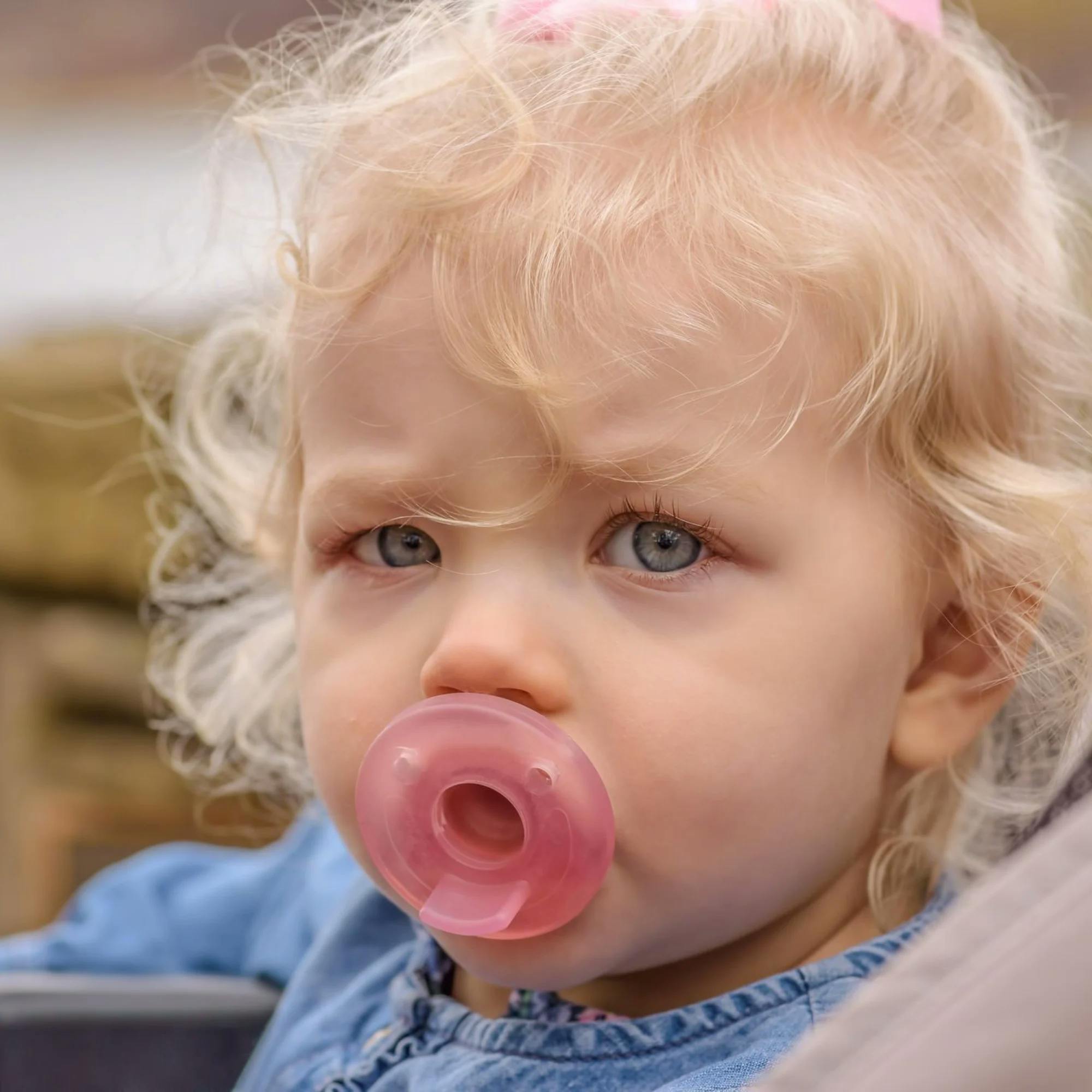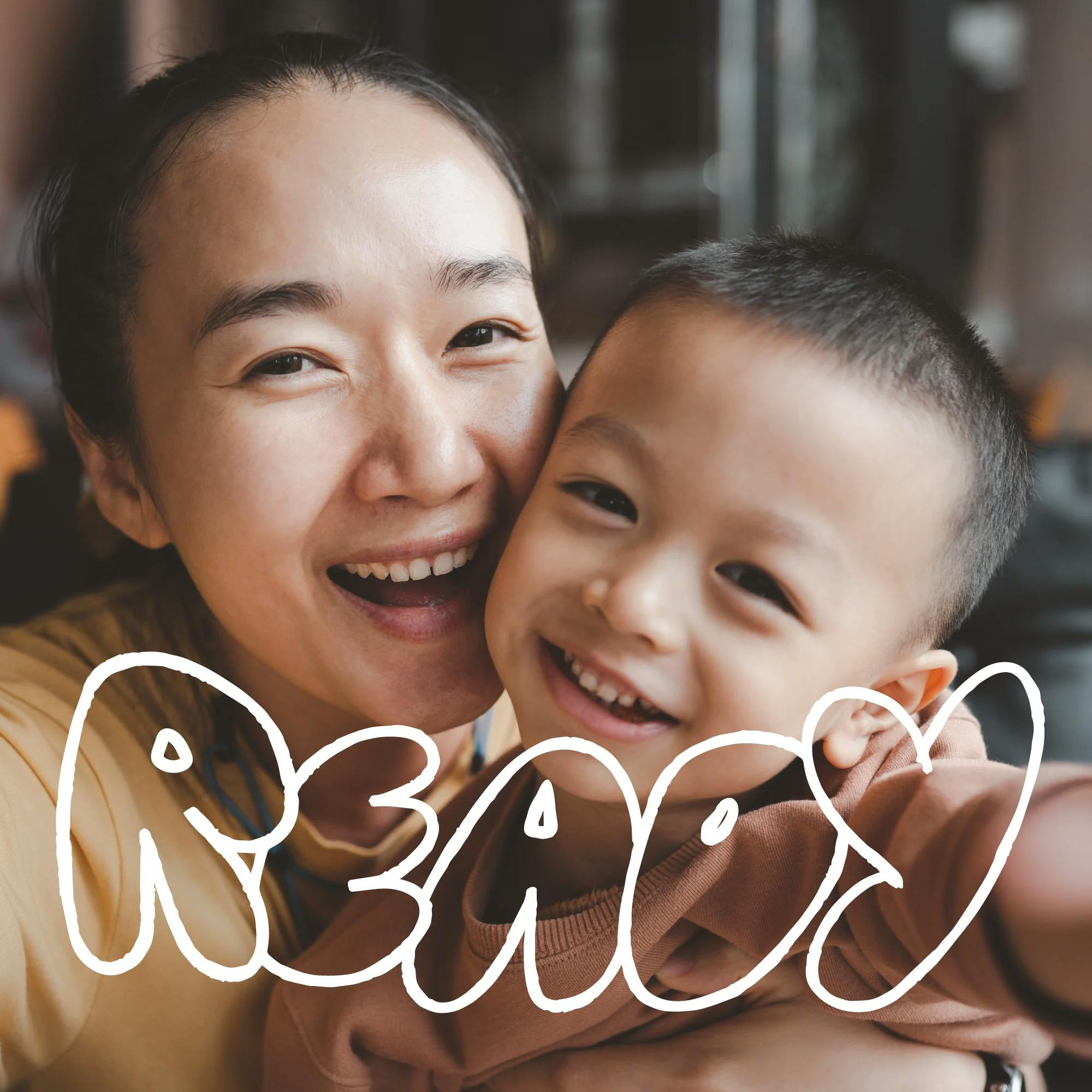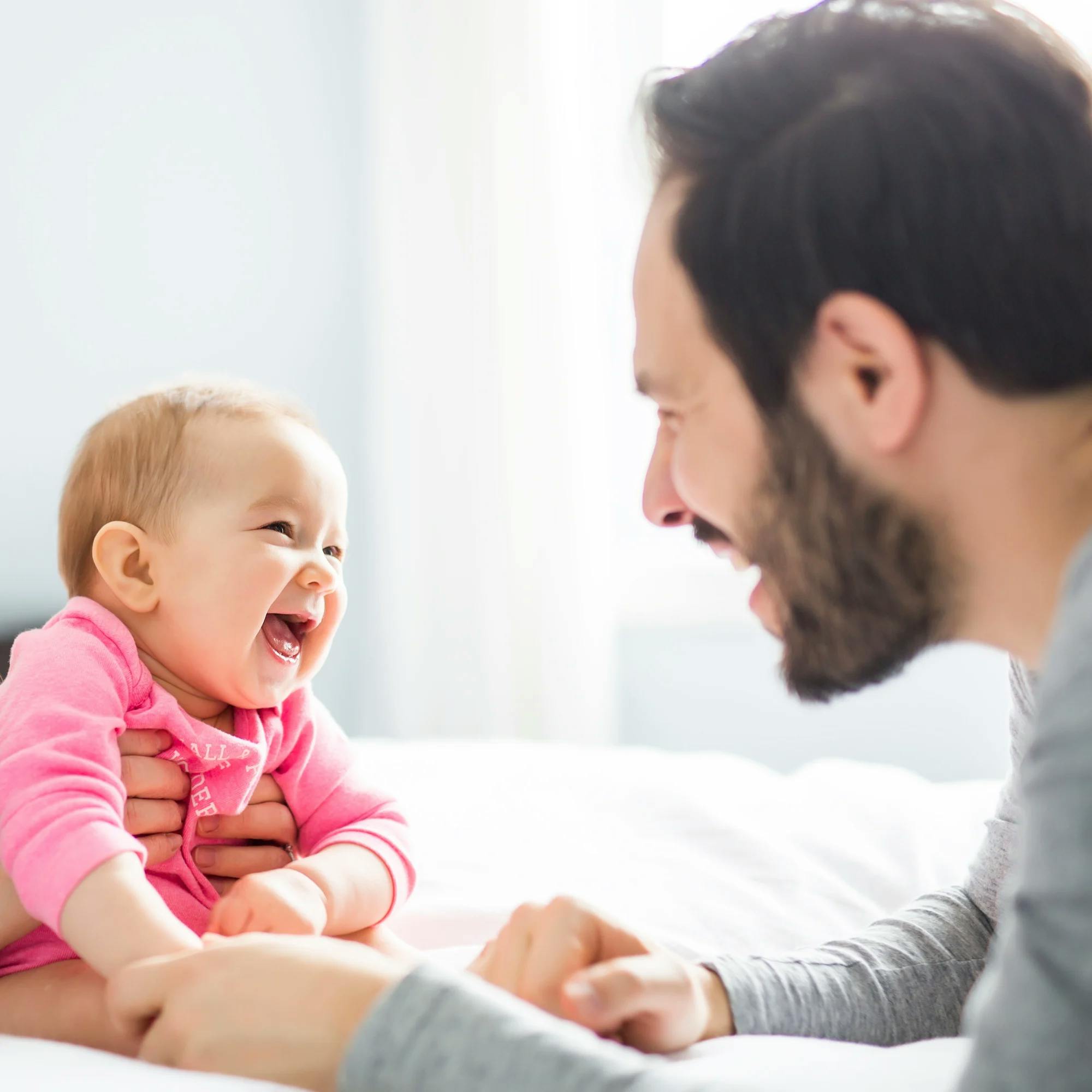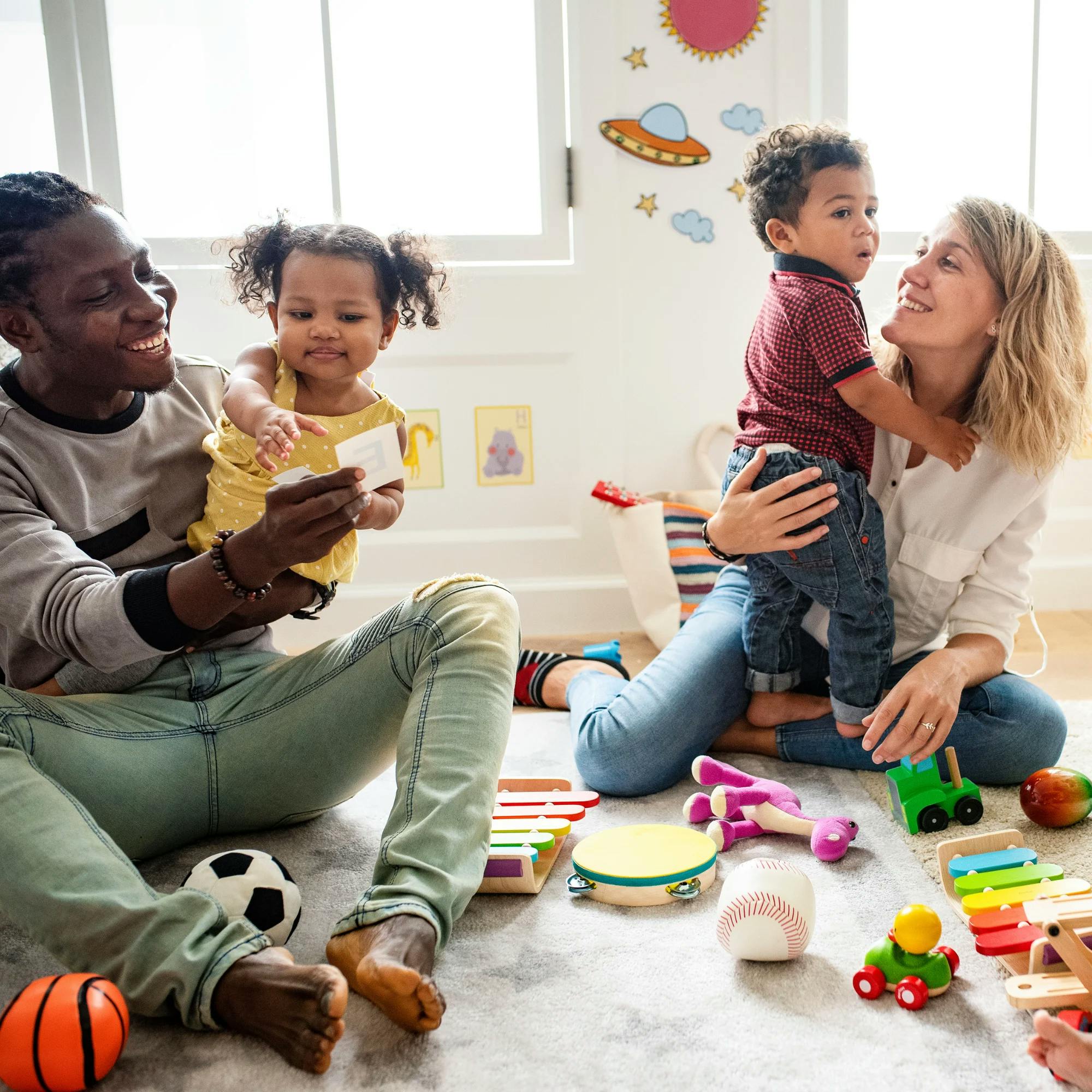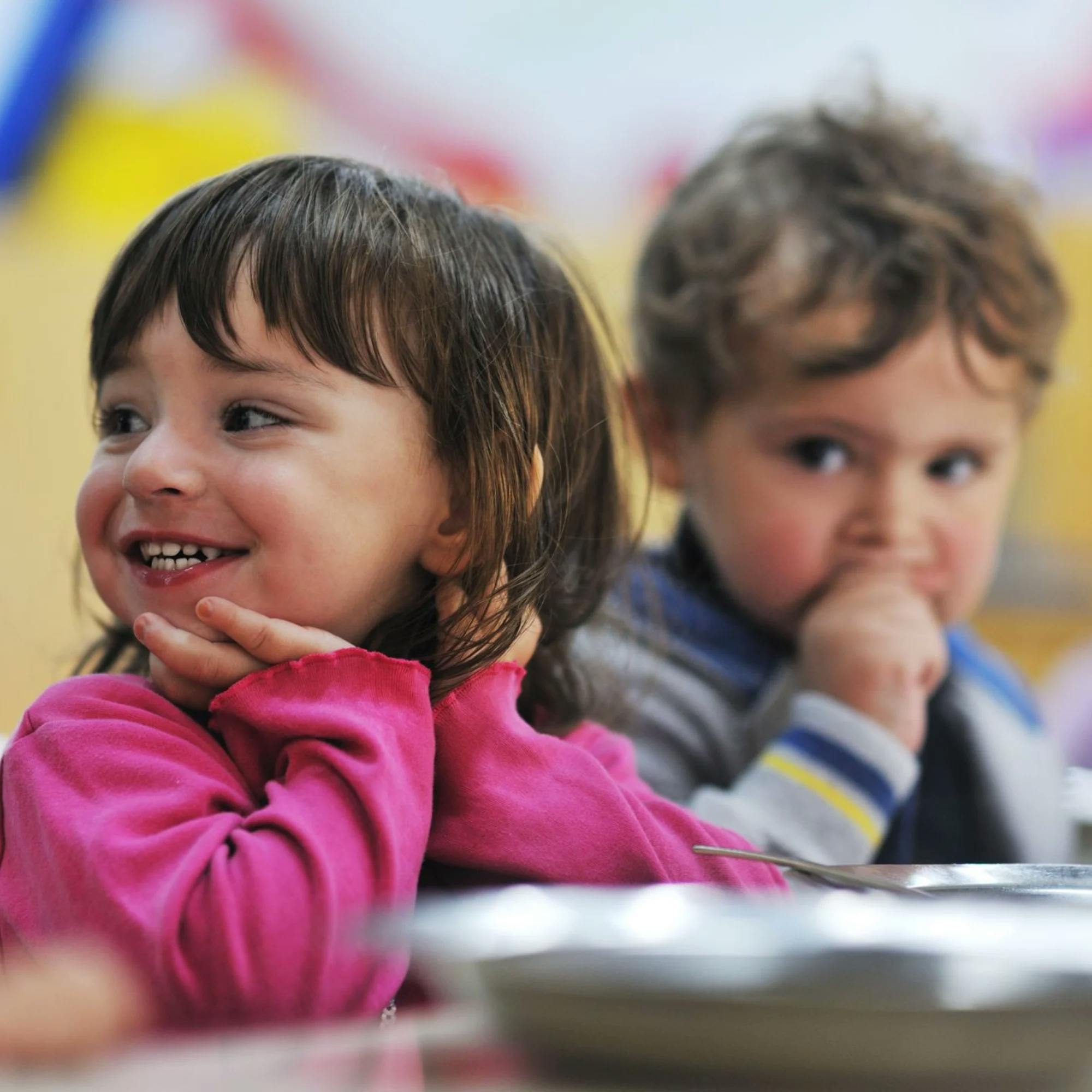At Expressable, we often hear parents ask, "Can a pacifier cause speech delay?" It’s a common concern, especially when pacifiers can be so helpful in soothing babies and toddlers.
Did you know that some babies start sucking their fingers before they’re even born? This natural reflex is an important part of early development, and pacifiers can provide comfort during stressful moments, help babies fall asleep, and even ease transitions to new environments.
But when should a child stop using a pacifier? And can using one for too long affect their speech and language development? Let’s explore the research and what parents need to know to support their child’s communication skills.
Can a pacifier cause a speech delay?
Yes, prolonged pacifier use can contribute to speech delays. While research is still evolving, studies suggest that extended pacifier use may impact a child’s speech and language development. This can happen because constant sucking limits opportunities for children to practice babbling, imitating sounds, and engaging in back-and-forth conversations. These are all important steps in learning to talk. It may also affect oral motor development, which is essential for clear speech.
That doesn’t mean pacifiers are all bad! They can be a helpful tool in early infancy. The key is knowing when and how to wean your child off them to support healthy communication skills. We explain more below!
Is your child on track?
Take our free screener to learn more about your child's development and whether a speech evaluation is recommended.
 Screener for children
Screener for childrenHow can a pacifier affect your child’s ability to talk?
In this article, we're focusing on how pacifiers can affect the development of a child’s speech and language skills. A child’s communication abilities and oral development evolve rapidly during the first few years of life. It's important to understand the potential impact of pacifiers so you know when to begin weaning your child off.
Here are 4 ways a pacifier can affect your child's speech and language:
1 Lisps
Frequent use of a pacifier in young toddlers can cause their tongue to protrude between their teeth. Not only can this cause dental problems, but it can also lead to a “lisp” that makes it hard for children to pronounce their “s” and “z” sounds. You can read more about lisps here.
2 Limited speech
As your child’s speech and language develops, you want to give them every opportunity to use words, practice conversation, and put their new skills into practice. When a pacifier is in their mouth, this can discourage them from talking or distort their speech.
For example, one 2024 study of more than 1,100 toddlers found that more pacifier use was associated with lower vocabulary size. The research showed that from 12 months of age, pacifier use has a negative impact on a child's speech.


3 Mouth structure
Sucking for an extended period of time can actually cause the palate of your child’s mouth to become raised or irregularly positioned. This can cause a speech disorder or tongue thrust to develop.
4 Swallowing
Pacifier sucking may also prevent your child from developing normal swallowing patterns. This can cause problems with feeding as well as trouble pronouncing certain sounds or words.
When should I stop the pacifier?
Every child is different, and there are no hard and fast rules about when a child should be weaned off their binky. However, many experts agree that it’s time to stop using a pacifier between 1 and 3 years of age.
As your toddler gets older, pacifier use becomes a more ingrained habit that's harder to break. While pacifiers have advantages, using them for a long time can cause problems for children. These can include dental issues, increased risk for ear infections, and problems with swallowing and speech development.
Concerned about your child's speech?
We're here for you. Get matched with a speech therapist who's experienced in your child's area of need and available when you are.
 Find a speech therapist
Find a speech therapistWhat should I do if my child’s speech is affected by a pacifier?
One of the most important steps is to gradually reduce, and eventually eliminate, pacifier use. As children grow, the risks of extended pacifier use can start to outweigh the benefits. While some children naturally give up their pacifier, others may need a little extra help.
Tips for weaning your child off a pacifier
Here are some strategies to ease the transition and naturally help your toddler stop using their binky:
Limit pacifier use: If you’ve been giving your child their pacifier at every waking moment, begin to slowly pull back on its use. You can save the pacifier for times of stress. Or you can set a schedule when the pacifier is allowed, such as before bedtime.
Find replacements: Find other beloved objects that can replace the pacifier. Try an interesting activity like a coloring book, a comforting item like a toy or blanket, or an engaging book. Your child will have an easier time breaking their habit when they receive something in exchange for the pacifier.

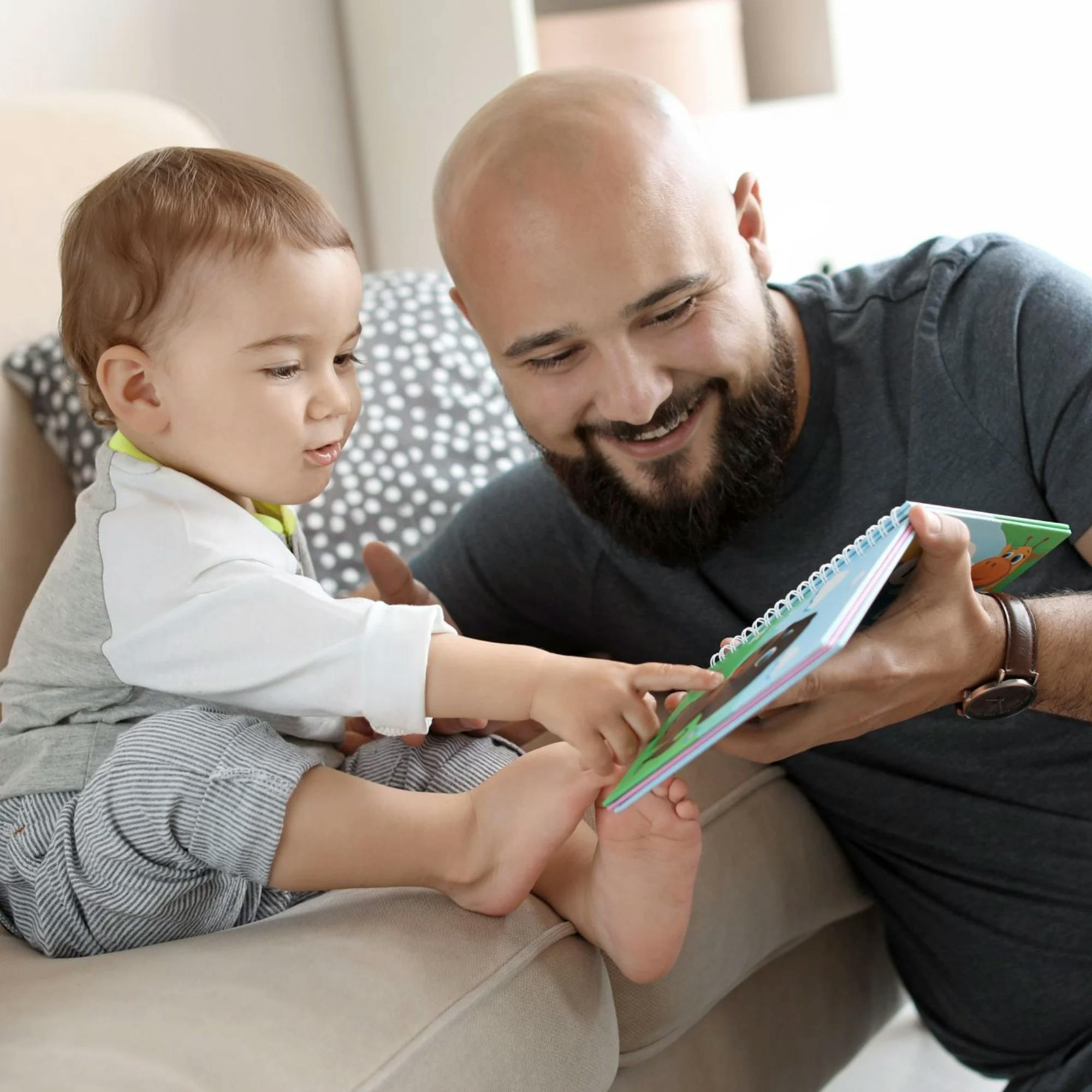
Be persistent: When a child is upset or having a meltdown, usually our first instinct is to reach for the pacifier. Weaning them off takes persistence. Plus, there could be many other reasons your child is crying: maybe they're hungry, or need a diaper change, or they're simply bored.
Use praise: Make sure to praise your child’s progress each time they choose not to use their pacifier. Compliment them and show how proud you are. You can even give them a small reward, like a small toy or sticker.
Go cold turkey: The verdict is still out on whether taking your child’s pacifier away (and never returning it) is an appropriate method. You have to decide what you think is best for your child. If you do remove their pacifier permanently, give your child a fair warning ahead of time, and get ready for tears and tantrums. What’s important is that you remain firm and not give in.

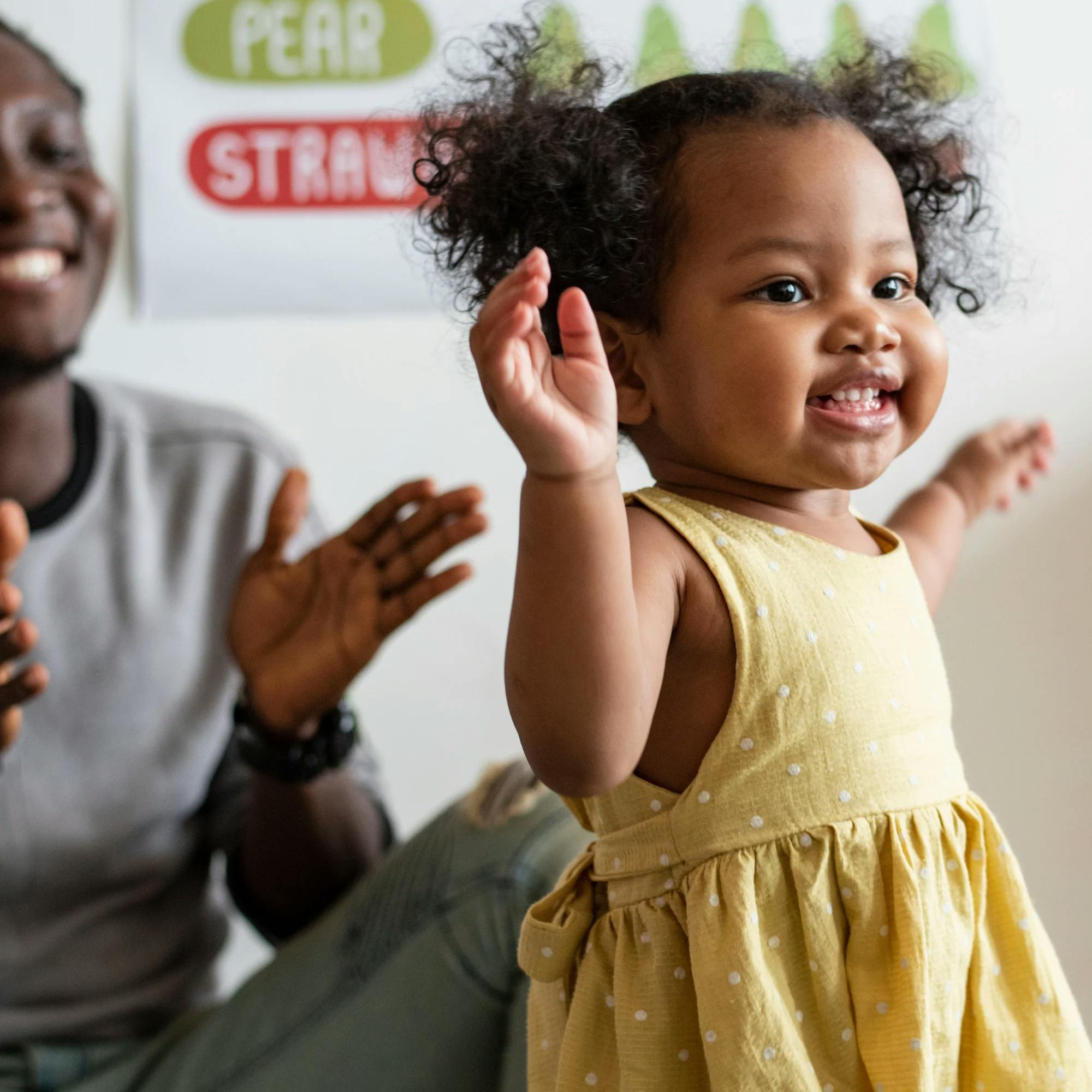
When to seek support
Even with successful pacifier weaning, you might still have concerns about your child’s speech development, and that’s okay! Every child develops at their own pace, but there are certain milestones that can help guide you. For instance, if your baby isn’t babbling by 7 months or your toddler hasn’t said their first word by 15 months, it may be time to seek extra support.
How speech therapy helps toddlers
If you’re worried about your child’s speech, a speech evaluation is a great first step. A licensed speech therapist, can assess your child’s communication skills and create a personalized plan to help them thrive. Whether your child needs support with oral motor development, sound production, or building vocabulary, early intervention can make a significant difference. Research shows that the earlier children receive speech therapy, the better their long-term outcomes.
Remember, a speech delay doesn’t define your child’s future. With the right support, they can grow into a confident, expressive communicator. You don’t have to navigate this journey alone.
If you’re concerned about your child’s speech development, don’t hesitate to reach out. Get matched with a speech therapist who's the right fit for your family. We're here to help!
How Expressable Can Help
Concerned your child isn't reaching age-expected milestones? Looking for communication support from a professional? Expressable is a national online speech therapy practice serving children and adults. We treat all major areas of communication and feeding, offer flexible hours including evenings and weekends, and accept most major health insurance plans. We’re proud to have earned more than 3,000 5-star reviews from our clients (4.9/5 average).
Our therapy model is centered on parent and caregiver involvement. Research proves that empowering caregivers to participate in their loved one’s therapy leads to better outcomes. That’s why we combine live, 1-on-1 speech therapy with personalized education and home practice activities for faster progress.
Communication is more than words. It’s how we share how we feel and show who we are. We’re here to help you or your child do just that.

 Leanne Sherred, M.S., CCC-SLP
Leanne Sherred, M.S., CCC-SLP